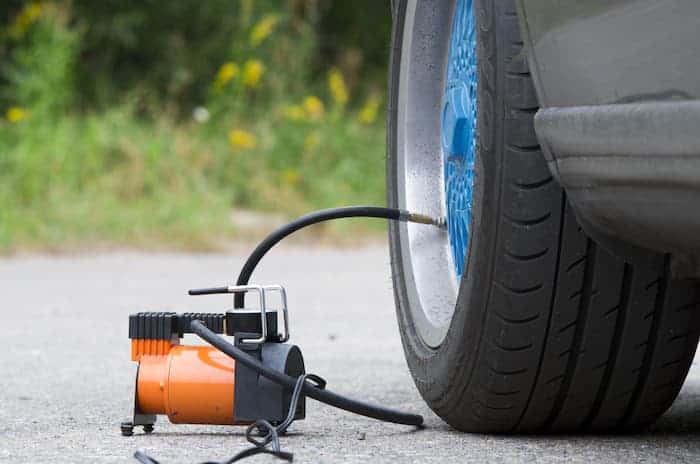Stealing a car is a serious offense that can lead to severe consequences, especially for juveniles. Juvenile offenders face different penalties than adults when it comes to car theft. Juvenile courts aim to rehabilitate young offenders instead of punishing them, but they also ensure that the punishment fits the crime. In this article, we will discuss how much time a juvenile can get for stealing a car and what factors affect the sentence.
Table of Contents
ToggleUnderstanding Juvenile Offenders and Car Theft

Before we dive into the penalties, let’s understand who is considered a juvenile offender and what constitutes car theft. Juvenile offenders are individuals who commit crimes before they turn 18 years old. Car theft, also known as grand theft auto, is when someone takes someone else’s car without their permission with the intention of keeping or selling it.
Factors That Affect the Sentence
The penalties for car theft depend on various factors, including the offender’s age, criminal history, the value of the stolen car, and the circumstances of the theft. Juvenile courts focus on rehabilitation, but they also take into account the severity of the crime and the risk the offender poses to society.
Age of the Offender
The age of the offender plays a significant role in determining the sentence for car theft. Younger offenders are often given more lenient sentences than older ones. The juvenile court aims to rehabilitate the offender and prevent them from committing further crimes in the future. The court may also take into account the offender’s maturity level and whether they understood the consequences of their actions.
Criminal History
The offender’s criminal history is also considered when determining the sentence. Juvenile offenders who have a history of committing similar offenses or have been in trouble with the law before may face harsher penalties than first-time offenders.
Value of the Stolen Car
The value of the stolen car is another factor that affects the sentence. In general, the higher the value of the car, the more severe the sentence. The court may also consider the condition of the car, the age of the car, and whether it was recovered in determining the sentence.
Circumstances of the Theft
The circumstances of the theft are also taken into account when determining the sentence. If the offender used force or violence to steal the car, the sentence will be more severe than if they simply took it without anyone’s knowledge. If the offender was part of a group or gang that committed the theft, the sentence may also be more severe.
how much time can a juvenile get for grand theft auto
Penalties for Juvenile Car Theft
The penalties for juvenile car theft vary depending on the factors mentioned above. In general, the sentence for a first-time offender can range from probation to several months in a juvenile detention center. However, if the offender has a criminal history or committed a particularly severe offense, they may face a longer sentence.
Probation
Probation is a common sentence for juvenile car theft. The offender is placed under the supervision of a probation officer and must follow certain conditions, such as attending school, staying away from criminal activities, and avoiding contact with the victim. If the offender violates any of the conditions, they may face harsher penalties.
Community Service
Community service is another common sentence for juvenile car theft. The offender is required to perform a certain number of hours of community service, such as cleaning up public areas or working at a non-profit organization.
Juvenile Detention
Juvenile detention is a more severe sentence for car theft. The offender is sent to a juvenile detention center for a certain period, usually ranging from several months to a year. While in detention, the offender is required to participate in educational and counseling programs to address their behavior and prevent them from committing further crimes.
Restitution
Restitution is a sentence that requires the offender to compensate the victim for the value of the stolen car or any damages caused during the theft. The court may also order the offender to pay for any expenses the victim incurred as a result of the theft, such as rental car fees or repair costs.
Driver’s License Suspension
If the offender had a driver’s license at the time of the theft, the court may suspend their license for a certain period. This is meant to deter the offender from committing further crimes and ensure they cannot use a car to commit another offense.
Transfer to Adult Court
In some cases, a juvenile offender may be transferred to adult court if they are deemed a danger to society or have committed a particularly severe offense. If the offender is tried in adult court, they may face harsher penalties, including longer prison sentences.
Conclusion
Juvenile car theft is a serious offense that can lead to severe consequences for the offender. The sentence for car theft depends on various factors, including the offender’s age, criminal history, the value of the stolen car, and the circumstances of the theft. Juvenile courts aim to rehabilitate young offenders, but they also ensure that the punishment fits the crime. If you or someone you know is facing charges for car theft, it’s important to speak with a lawyer who can help navigate the legal system.
What is the punishment for juvenile theft in California?
The punishment for juvenile theft in California depends on various factors, including the offender’s age, criminal history, the value of the stolen property, and the circumstances of the crime. Possible sentences include probation, community service, juvenile detention, restitution, driver’s license suspension, and transfer to adult court.
Is the game "grand theft auto" ok for 13 year old?
The game “Grand Theft Auto” is rated M for mature and is not recommended for children under the age of 17. The game contains violence, strong language, sexual content, and drug use, which may not be appropriate for young children.
What is the youngest age for juvenile detention?
The youngest age for juvenile detention varies by state and country. In the United States, most states set the minimum age at 10 or 12 years old. However, some states have no minimum age and allow children of any age to be detained if they commit a crime.




